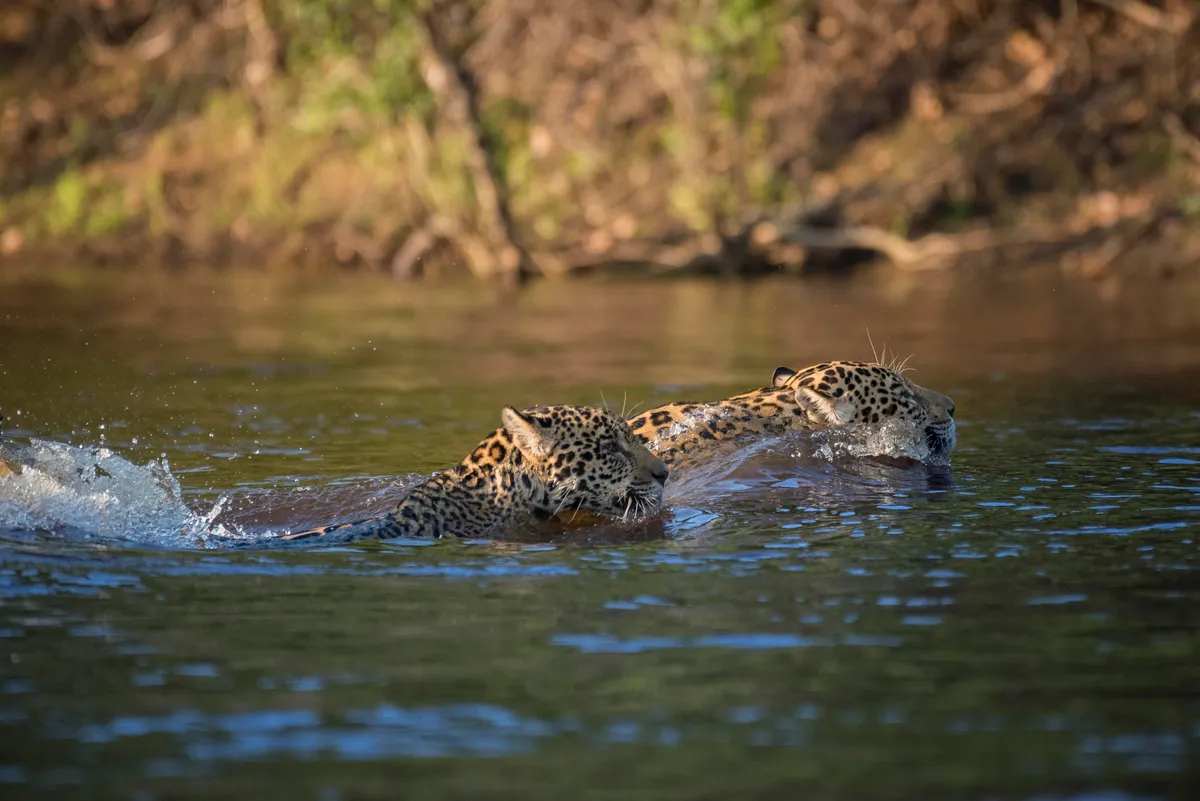Jaguars are classic aloof, solitary carnivores. Like most other big cats, they come together only for courtship and territorial disputes. But not in the wetlands of the Brazilian Pantanal, apparently, where a shift in diet has led to striking changes in their social organisation.
The Pantanal is the world’s largest tropical wetland. Biologists have been using a combination of scat analysis, radio tracking and camera traps to study the behaviour of jaguars in a remote region lacking roads and human settlements.

The results, recently published in the journal Ecology, reveal a density of jaguars about double that found elsewhere. Not only are they more plentiful, but they are more sociable, too. Their home ranges overlap considerably and they spend time travelling, hunting and playing together. Two males were caught on camera playing together for 30 minutes.
The biologists suggest that the breakdown of hostilities is a consequence of an unusual diet. Most jaguars are reliant of terrestrial mammalian prey. But in the wetlands, aquatic food, such as turtles and caiman, is plentiful. Fish – including piranha - comprised nearly 50% of their diet.
“As far as we know, this is the most piscivorous diet of any large felid,” write the biologists.
Learn more about big cats:
“If there is a lot of food around, there is less of a need to fight over it,” says Oregon State University’s Charlotte Eriksson, lead author of the study. “We don’t know whether it is just the high abundance of prey that has contributed to the high jaguar density, or if an aquatic diet has specific physiological benefits to jaguars,” she adds. “This would be an interesting topic to explore in a future study.”
For now, though, Eriksson and her colleagues are studying the effects of wildfires on jaguars and their prey. “Catastrophic wildfires burned over a third of the entire Pantanal biome last year, including a large portion of our study area,” says Eriksson. “Assessing how jaguars and their prey respond to fire will be critical to project the impacts of climate change and to conserve viable populations.”
View a video from Oregon State University about the research:
Please note that external videos may contain ads.
Read the full paper in Ecology.
Main image: A wild jaguar alert on a riverbank in the Pantanal, Brazil. © Jami Tarris/Getty